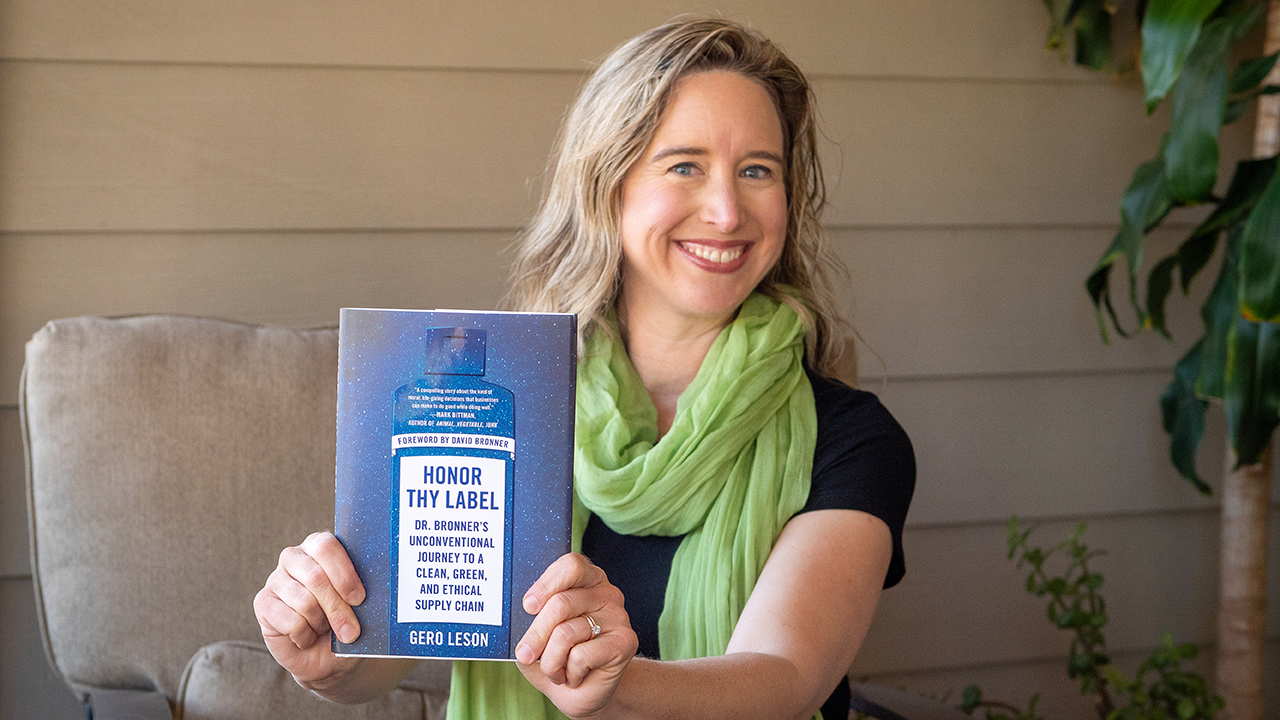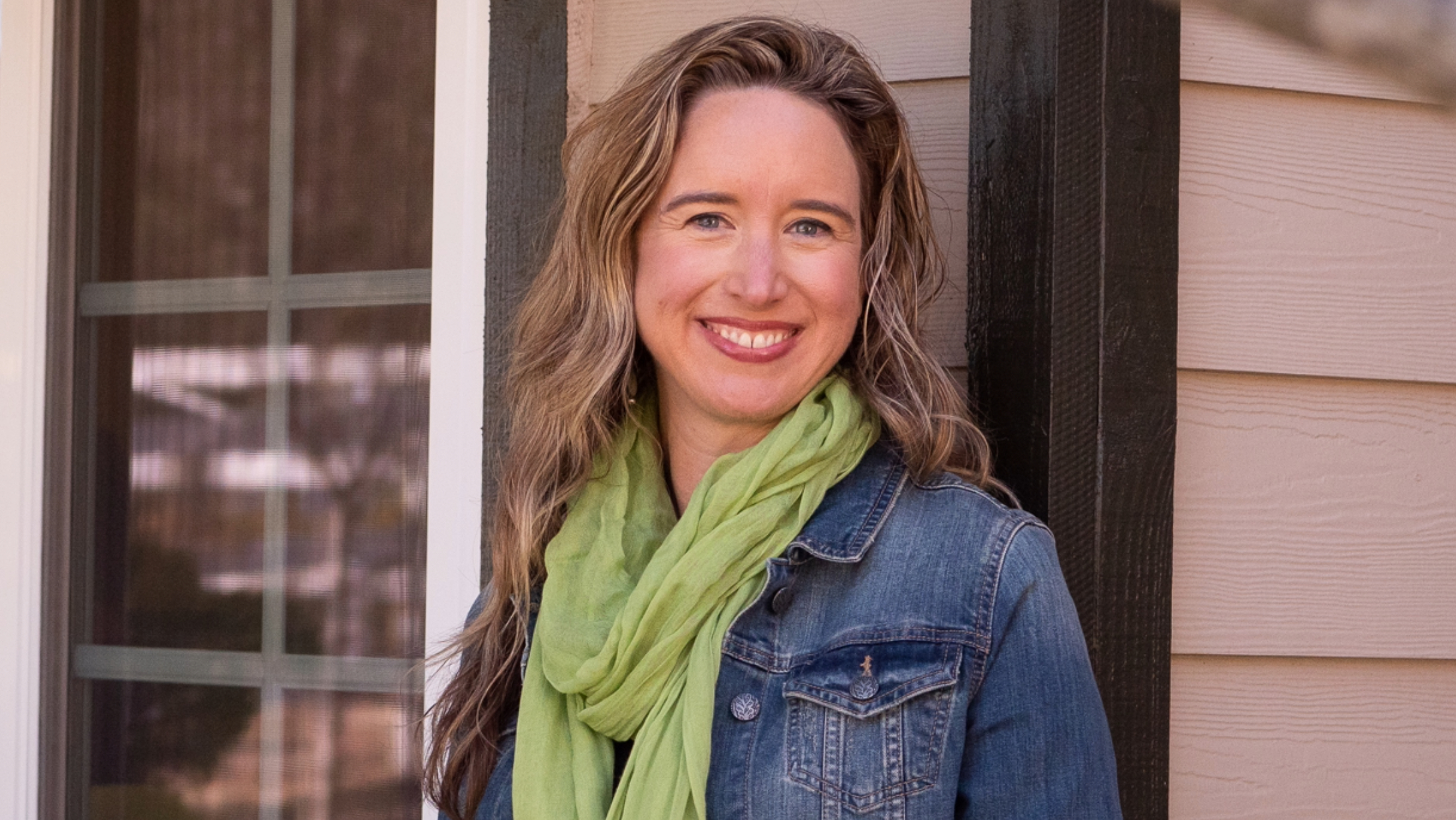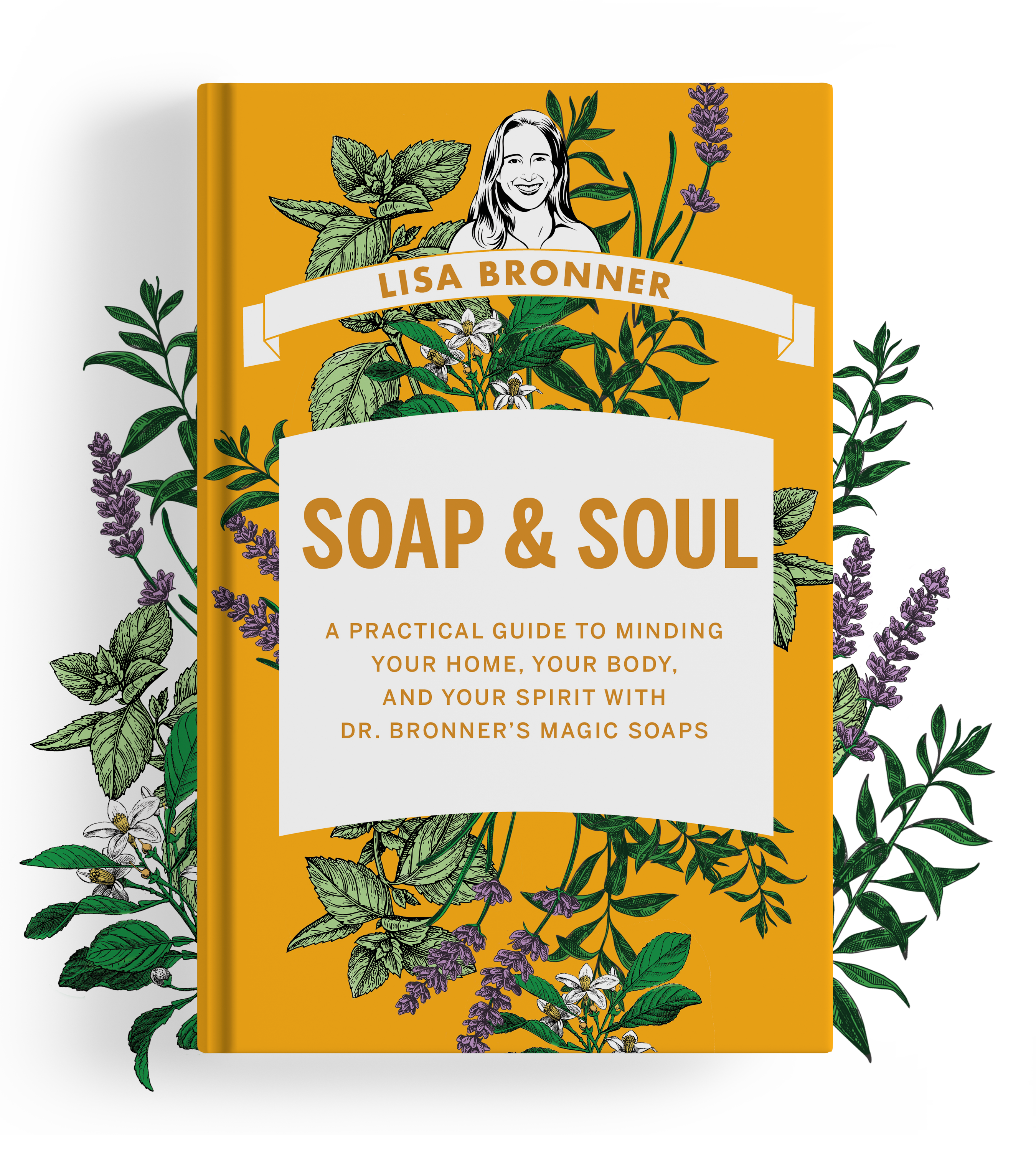
One of my favorite parts of working at Dr. Bronner’s is how a group of incredibly diverse people link their differing strengths to move mountains bigger than any one of us could achieve alone. We head towards the same goals but on completely different avenues.
Here I am writing to you from the comfort of my home, helping individuals one by one in their daily lives, whilst others of my colleagues traipse the world, transforming whole communities and agricultural systems on this huge global scale. I work micro. They work macro.
One of these global adventurers is our Vice President of Special Ops, Gero Leson, whom I first met amidst a noisy group dinner in a dim restaurant in Boston after an exhausting day at a trade show. I was completely worn out, trying to stay upright and sociable, and all I remember is the deep voice, German accent, serious demeanor, impressive credentials. As it turned out, all of that covered the heart of a courageous and determined problem-solver, who plunges into far-flung parts of the world to establish innovative businesses that benefit people and planet. That and an incredibly dry wit.
Honor Thy Label: Dr. Bronner’s Unconventional Journey to a Clean, Green and Ethical Supply Chain is his book and tells the story of his adventures in global business. I interviewed Gero live on my Facebook page earlier this month.
At the core of this story are Dr. Bronner’s ingredients – where they come from, the people involved, the environments and communities impacted – things many conscientious consumers yearn to know as they seek to vote with their purchases for good business practices. The book even tackles how palm oil is done well.
However, there is so much more in there.
- There’s the story of Dr. Bronner himself, from his German Jewish roots to his efforts to unite the world through a message on a soap bottle.
- There’s the story of a family business, begun as the vision of one man and transferred successfully through generations, each building upon the successes of the last.
- There’s a history of the company’s unexpected and trailblazing activism in areas such as organic integrity, drug policy reform, and climate change.
- There’s explanations of the gorgeously efficient soap-making reaction, called “saponification” – one of my favorite topics!
I particularly enjoyed the sections about Serendipol in Sri Lanka. It took me back to my visit there in 2014. The sounds of the jungle, the beauty of the factory, the smiles and ready friendships, close encounters with monkeys.
In addition to our interview, Gero answered a few more of my questions afterwards:
On doing what hasn’t been done: What makes Dr. Bronner’s different in its approach to establishing supply chains? Why don’t other companies do the same?
For all our major agricultural ingredients, we “go as close to the farm” as we can, literally. Through our sister companies and close partners we directly buy from individual farmers or farmer groups, we’ve built and operate, with trusted and competent local partners processing operations for these ingredients, such as coconut and palm oil factories. In that process we get to view conditions on the farm up close, we know who gets paid what, how employees are treated, and where our money for community development goes. Our intent is to leave a positive impact where our ingredients originate, socially and environmentally. We make sure that these operations are third-party inspected and certified to meaningful and credible standards – regenerative organic and fair trade being the most important ones. The bottom-line: we generally don’t just buy organic and fair ingredients, we actually make them – or are close to their production.
Many other small- and medium-sized companies have a much larger range of ingredients. “Getting close” to even most of them is beyond their abilities, financially and technically. And they may not know where to start. Large companies could do that, for many of their main ingredients. Yet, they are publicly owned, risk averse and, in their defense – they typically use large volumes with long supply chains. Thus, both types of companies generally substitute great stories for actual engagement in their supply chains. The advice: start at least with one ingredient that’s particularly important or problematic for you, get to know your supply chain, see where and how you can have an impact. And be open that the situation on the ground may not match your preconceived ideas.
On speaking for the powerless: In Honor Thy Label, you write, “There just isn’t the oversight or even the interest to protect unproductive forest; it has no economic value except for those who live in it -and they have little voice.” It has been part of the core of Dr. Bronner’s from the beginning to speak for people and causes who have no voice or little economic value. How do you feel your work with supply chains carries out this part of the original vision of Dr. Bronner himself?
If you produce your own organic/fair coconut, palm, and mint oil, you automatically engage with disadvantaged farmers, workers, and communities in the global south. There, we learn about the dynamics of poverty and about ways to address them. Thus, our supply chain work offers a great way to tell Westerners about global problems they’re vaguely aware of and of potential solutions. That fits right in with Emanuel Bronner’s vision!
On problem solving: Over the course of the book, I noticed a change in your team’s response to unexpected problems at the various projects. In Sri Lanka, the first project, the hurdles that popped up seemed to startle you and nearly sank the project, but in Samoa, the most recent project, you seemed to expect them and navigate around them more smoothly. What made this difference, or am I imagining it?
Yes, the projects have taught us not to be overwhelmed by a disaster – and they happen all the time – but take them as “normal,” immediately look for practical solutions, often turning them into opportunities. You know there is fraud, climate problems, quality hiccups. Some you anticipate and prevent, others happen anyway but we’ve learned that there are always solutions – sometimes not pleasant, such as shutting a company down. And, as you solve problems, you realize that customers, such as Dr. Bronner’s and other committed brands prefer an open dialog about problems and the joint development of solutions. That approach is much better for your adrenalin – and helps you learn and build constructive relationships. Disasters scare us much less now than they used to.
On serendipity: The Serendi prefix on all of Dr. Bronner’s sister projects – Serendipol, Serendipalm, Serendicoco – from Sinhala, one of the languages of Sri Lanka, site of Serendipol, the first project, and is often translated as “blessed.” It is also the root for the English word “serendipity” which describes a happy accident or fortunate discovery. Why did you choose to apply this word to all these projects? Can you give an example of some of the serendipity in your work with Dr. Bronner’s?
When we started our supply (or value) chain work, there was a vision but no real plan. You cannot plan programs for multiple projects you’ve never done before under unfamiliar circumstances. Serendipity and openness to its proposals then become key to success. Finding the “right partners,” such as Gordon and Sonali in Sri Lanka and using the tsunami relief project as foundation for Serendipol is an example. Discovering dynamic agroforestry through friends as a “regenerative option” in Ghana is another one. Finding a constellation in India that helped us build a new project out of the ashes of our own company destroyed by fraud….there are many more.
On bottom lines: You talk about a Triple Bottom Line of People, Planet, and Profit. What do you mean by this? Is this concept transferrable to other supply chains or even other areas of human endeavors?
The financial bottom-line is law – ignore it at the company’s peril. Adhering to the triple bottom line means that you treat your positive impact on people (staff, suppliers, communities) and planet (environment, notably soils – direct and indirect) as if it had the same inevitableness as the profit you need to make. Sounds good but much less enforceable, due to poor metrics. The triple bottom-line forces a mindset that brings managements to consider the impact of their actions on people and planet and, within their financial constraints, prioritize positive outcomes. The B Corp certification system tries to assign metrics to these non-financial objectives and scores reflect the outcomes. Yes, the triple-B concept is universally applicable – to any business activity – more or less, depending on their structure. Short of having universal metrics, keeping an open heart and refraining from the common green- and fair-washing is a constant challenge.
On at-home activism: You have done a tremendous amount of activism through business, bettering the lives of thousands of farmers and mill workers around the world. Many people would love to have a part in such work but don’t know how. What advice do you have for them on how to be an at-home activist, or to support such activism from home?
The trite advice: support companies that convincingly use triple bottom lines, engage with their suppliers, and strive for positive impact. Very difficult to judge as a consumer. Inform yourself on key issues related to the supply chains of your favorite products and look to support groups that are active in the field. On your job, try to bring meaning and purpose to what you do by considering your work’s impact – w/o becoming obsessed with being the perfect recycler or using immaculate language. Action matters. Remain curious about what you encounter and do.
On backyard gardening: Regenerative Organic Agriculture and Dynamic Agroforestry are so far-reaching in their positive impacts, improving the lives of workers and animals, rebuilding soil health and resiliency, even capturing carbon from the air and replacing it in the soil where it belongs. It seems like a win for the farmers, a win for the buyers, a win for the earth. It’s beautiful! How can the principles of regenerative agriculture, and even Dynamic Agroforestry, be scaled down to apply to home gardening and backyard farming?
It depends a lot on what you grow and where. There are no firm rules, but a few guiding principles. See how you can increase carbon content in your soil – by taking compost and mulch to the soil, grow plants in communities rather than in monocultures, avoid the use of agrochemicals. Experiment, get advice from experienced and open practitioners, and develop understanding. And marvel at the diversity that may spring up – rather than always labeling it “weeds.” I’ve gone through all of it, suffered terribly from snails, slugs, and weeds. As a home gardener you don’t entirely rely on maximum yields. Afford yourself losses, don’t take them personally, be intentional. To be honest: I am not the greatest example – too impatient – but many I know are and get much joy out of gardening this way.
On the future: What’s next for your Special Ops team?
We are diversifying all the projects we’re working with closely – both on products and agricultural practices. Most are now regenerative organic certified (ROC), a great opportunity to offer ROC ingredients to third parties: cocoa, cassava, and turmeric from our oil palm project in Ghana, peanuts and medicinal herbs from India, coconut milk, cream, and chips from Serendipol in Sri Lanka. This diversification stabilizes the projects, keeps the operators motivated and spreads “the ROC gospel.” We are working with other brands that share the vision to develop platforms where credible suppliers and buyers meet, thus shortening the distance between them and helping create understanding and human interaction.
And we have many “social projects” to tackle. Julia’s campaign to address the problems of menstrual hygiene in rural India, with a growing number of international allies is one such campaign with potentially great impact.
In closing, how can one soap company do all this? Maybe because no one told us it was impossible. Check out Gero’s book to find out more!
Further reading



It is so refreshing to see a company commit to and practice the ‘Triple Bottom Line of People, Planet & Profit”.
How can one soap company do all this? Maybe because no one told us it was impossible…
I assume you won’t be upset if I buy the book from my local independent bookseller.
Not at all! Please support your local independent book seller! Enjoy!
Thanks for posting this on your blog, Lisa!! I am no longer on facebook, so I only get updates through your blog, regarding Dr Bronners things!! I can’t wait to read the book!